Worldwide Candle Lighting Day *
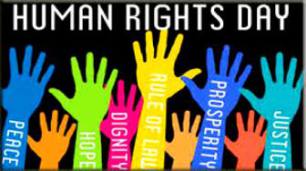
Dewey Decimal System Day *
National Lager Day

International Human Rights Day *
_________________________________________________
MORE! Ada Lovelace, Melvil Dewey and Hermes Pan, click_________________________________________________
WORLD FESTIVALS AND NATIONAL HOLIDAYS
Cambodia – Human Rights Day
Switzerland – Geneva: Fête de l’Escalade
(1602 victory over Duke of Savoy)
Namibia – Namibian Women’s Day

Thailand – Constitution Day
Turkey – Konya:
Whirling Dervishes Festival
_________________________________________________
On This Day in HISTORY1317 – The “Nyköping Banquet” – King Birger of Sweden treacherously seizes his two brothers Valdemar, Duke of Finland and Eric, Duke of Södermanland, who are subsequently starved to death in the dungeon of Nyköping Castle
1520 – Outside Wittenberg’s Elster Gate, Martin Luther burns his copy of Pope Leo X’s papal bull Exsurge Domine (‘Arise O Lord’ in Latin), which threatens Luther with excommunication if he doesn’t recant
1538 – Battista Guarini born, Italian poet, dramatist and diplomat; noted for his play, Il pastor fido (The Faithful Shepherd), and the use of his poetry as madrigal lyrics
1541 – Thomas Culpeper and Francis Dereham are executed for treason for having sexual relations with Catherine Howard, Queen of England and wife of Henry VIII – in Culpeper’s case, his confession under torture may not have been true, as the evidence against him is Dereham’s allegation. Catherine was beheaded the following February
1684 – Isaac Newton’s derivation of Kepler’s laws from his theory of gravity, contained in the paper De motu corporum in gyrum (“On the motion of bodies in an orbit”), is read to the Royal Society by Edmond Halley
1768 – The Royal Academy of Arts is founded in London by George III, with Joshua Reynolds is its first president
1787 – Thomas Hopkins Gallaudet born, American educator, founder of the American School for the Deaf
1799 – France adopts the metre as its official unit of length
1815 – Ada Lovelace born, English mathematician and pioneering computer programmer, who collaborated with inventor Charles Babbage in designing an “Analytical Engine”
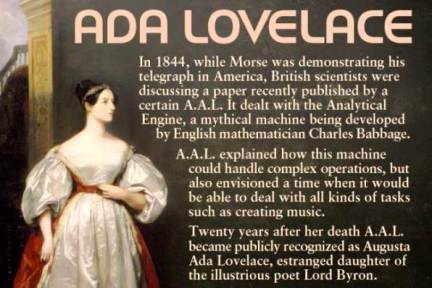
1817 – Mississippi becomes the 20th U.S. state
1822 – César Franck born, Belgian organist and composer 1824 – George MacDonald born, Scottish novelist, poet and minister; At the Back of the North Wind, Wee Sir Gibbie of the Highlands, Within and Without: A Dramatic Poem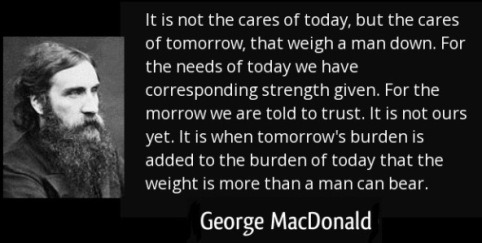
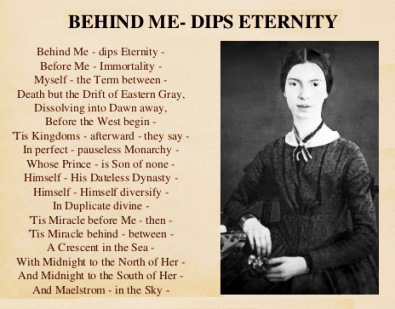
1845 – British civil engineer Robert Thompson patents the first pneumatic tires
1851 – Dewey Decimal System Day *– Melvil Dewey born, American creator in 1876 of the library classification system named for him, now used in 135 countries and translated into 30 languages
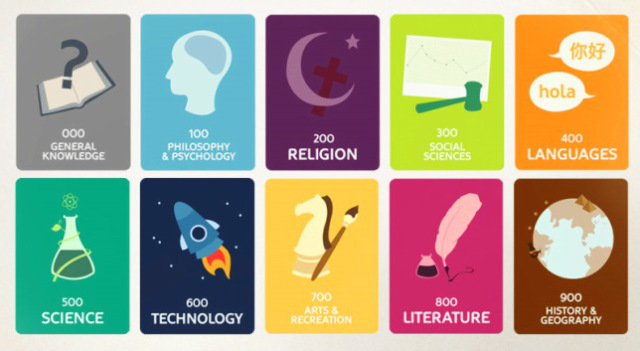
1864 – Major General William Tecumseh Sherman’s Union Army troops reach the outer Confederate defenses of Savannah, Georgia
1868 – The first traffic lights are installed, outside the Palace of Westminster in London. Resembling railway signals, they use semaphore arms and are illuminated at night by red and green gas lamps
1869 – Women are granted the right to vote in the Wyoming Territory
1870 – Adolf Loos born, influential Austrian Vienna Secession architect and theorist; Ornament and Crime
1884 – Mark Twain’s Adventures of Huckleberry Finn is published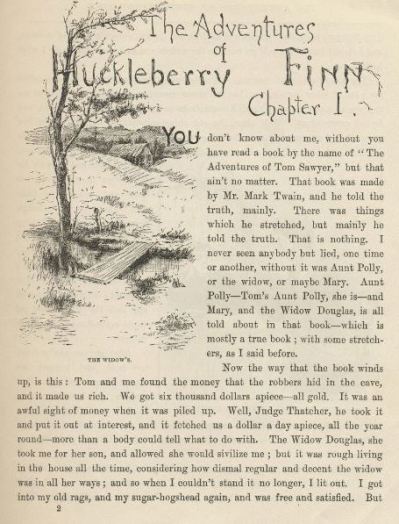
1891 – Nelly Sachs born, German-Swedish poet and playwright, Nobel Prize laureate
1896 – When French symbolist Alfred Jarry’s Ubu Roi (‘King Ubu’) premieres in Paris, a riot breaks out at the end of the performance. Ubu Roi is widely regarded as a forerunner of Dadaism, Surrealism and Theatre of the Absurd
1898 – A treaty signed in Paris officially ends the Spanish-American War, and makes Cuba independent of Spain
1901 – The first Nobel Prizes are awarded
1903 – Mary Norton born, English children’s author; noted for The Borrowers series
1906 – U.S. President Theodore Roosevelt wins the Nobel Peace Prize for his mediation of the Russo-Japanese War, becoming the first American to win a Nobel Prize
1907 – The worst night of the ‘Brown Dog Riots’ in London. 1,000 medical students clash with 400 police officers over an anti-vivisectionist memorial statue of the dog used in a vivisection, which triggered allegations in 1903 that William Bayliss of the Department of Physiology at University College London performed a ‘cruel and unlawful’ vivisection, before an audience of 60 medical students, on a brown terrier dog – adequately anaesthetized, according to Bayliss and his team; conscious and struggling, according to Swedish activists who had infiltrated the college. The procedure is condemned by the National Anti-Vivisection Society. Bayliss, whose research on dogs led to the discovery of hormones, is outraged by the assault on his reputation, sues for libel and wins
1908 – Olivier Messiaen born, French composer and ornithologist1909 – Selma Lagerlöf becomes the first female writer to win the Nobel Prize in Literature
1909 – Hermes Pan born, American choreographer who collaborated with Fred Astaire on many of his film musicals 1913 – Morton Gould born, American pianist, composer, and conductor1913 – Pannonica “Nica” de Koenigswarter born in Britain, champion of Jazz, author of Les musiciens de jazz et leurs trois vœux (“The jazz musicians and their three wishes”); served as a decoder, driver, and radio host for the Free French during WWII
1919 – Alexander Courage born, American composer and conductor 1925 – Carolyn Kizer is born, American poet, academic and feminist
1931 – Jane Addams becomes a co-recipient of the Nobel Peace Prize, the first American woman to be honored
1932 – Thailand becomes a constitutional monarchy
1936 – Abdication Crisis: British King Edward VIII signs the Instrument of Abdication, so he can marry Wallis Simpson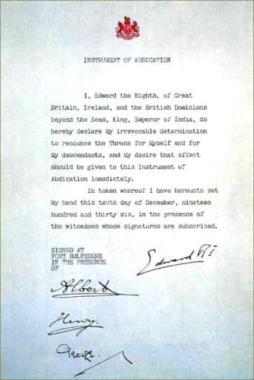
1941 – Japan invades the Philippines
1948 – The UN General Assembly adopts the Universal Declaration of Human Rights – In 1950, the Assembly passes a resolution inviting nations and world organizations to join with the UN in marking December 10 as International Human Rights Day *
1949 – The People’s Liberation Army begins its siege of Chengdu, the last Kuomintang-held city in mainland China, forcing President of the Republic of China Chiang Kai-shek and his government to retreat to Taiwan
1950 – Dr. Ralph J. Bunche is presented the Nobel Peace Prize, the first African-American to receive the award, for his efforts in mediation between Israel and neighboring Arab states
1953 – Hugh Hefner publishes the first Playboy magazine with a $7,600 investment
1955 – Mighty Mouse Playhouse premieres on American television1958 – The first domestic passenger jet flight took place in the U.S. when 111 passengers flew from New York to Miami on a National Airlines Boeing 707
1958 – Cornelia Funke born, bestselling German-American children’s author, the Inkheart trilogy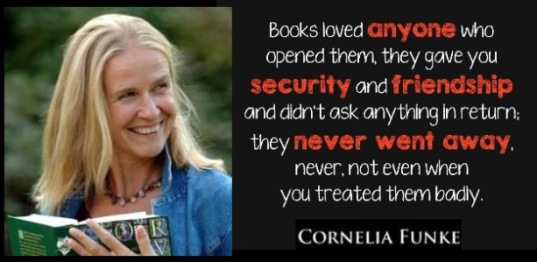
1960 – Kenneth Branagh born, British actor-director-producer-screenwriter
1963 – Zanzibar gains independence from the United Kingdom as a constitutional monarchy, under Sultan Jamshid bin Abdullah
1964 – In Oslo, Norway, Dr. Martin Luther King Jr. receives the Nobel Peace Prize
1965 – The Grateful Dead’s first concert performance under the band’s new name, at San Francisco’s Fillmore Auditorium
1976 – Queen’s single “Somebody To Love” is released in the U.S.1978 – Arab–Israeli conflict: Israeli Prime Minister Menachem Begin and President of Egypt Anwar Sadat are jointly awarded the Nobel Peace Prize
1979 – Kaohsiung Incident: Taiwanese pro-democracy demonstrations are suppressed by the KMT dictatorship, and organizers are arrested
1982 – The Law of the Sea Convention is signed by 118 countries in Montego Bay, Jamaica; 23 nations in addition to the U.S. are excluded
1983 – Democracy is restored in Argentina with the inauguration of President Raúl Alfonsín
1984 – South African Bishop Desmond Tutu receives the Nobel Peace Prize
1992 – Oregon Senator Bob Packwood apologizes for what he called “unwelcome and offensive” actions toward women, but refuses to resign
1993 – The last shift leaves Wearmouth Colliery in Sunderland. The closure of the 156-year-old pit marks the end of the old County Durham coalfield, which had been in operation since the Middle Ages
1994 – Yasser Arafat, Shimon Peres and Yitzhak Rabin receive the Nobel Peace Prize, pledging to pursue their mission of healing the Middle East. Yitzhak Rabin is assassinated in November, 1995, by an ultra-orthodox extremist who opposed the signing of the Oslo Accords
1996 – The new Constitution of South Africa is promulgated by Nelson Mandela
1997 – The Compassionate Friends, which began in Britain is an online support group for those who have lost a child (of any age). The U.S. Society, which incorporated in 1978 in Illinois, begins Candle Lighting Day * as a national memorial for children who died too young and a way to help their bereaved families find solace and healing, but it’s grown into an international observance
1998 – The Amnesty International Concert for Human Rights Defenders takes place at Bercy Stadium in Paris, France
2001 – The Lord of the Rings: The Fellowship of the Ring, the first in a three-film adaptation of J.R.R. Tolkien’s epic fantasy trilogy, premieres in London2002 – Former President Jimmy Carter accepts the Nobel Peace Prize for his diplomacy in the Middle East in the 1970s
2007 – Cristina Fernandez is sworn in as Argentina’s first elected female president
2009 – James Cameron’s film Avatar has its world premiere in London
_________________________________________________
Share this:- More





